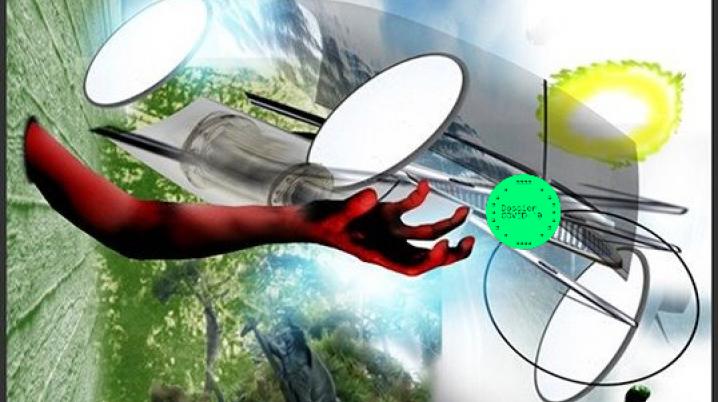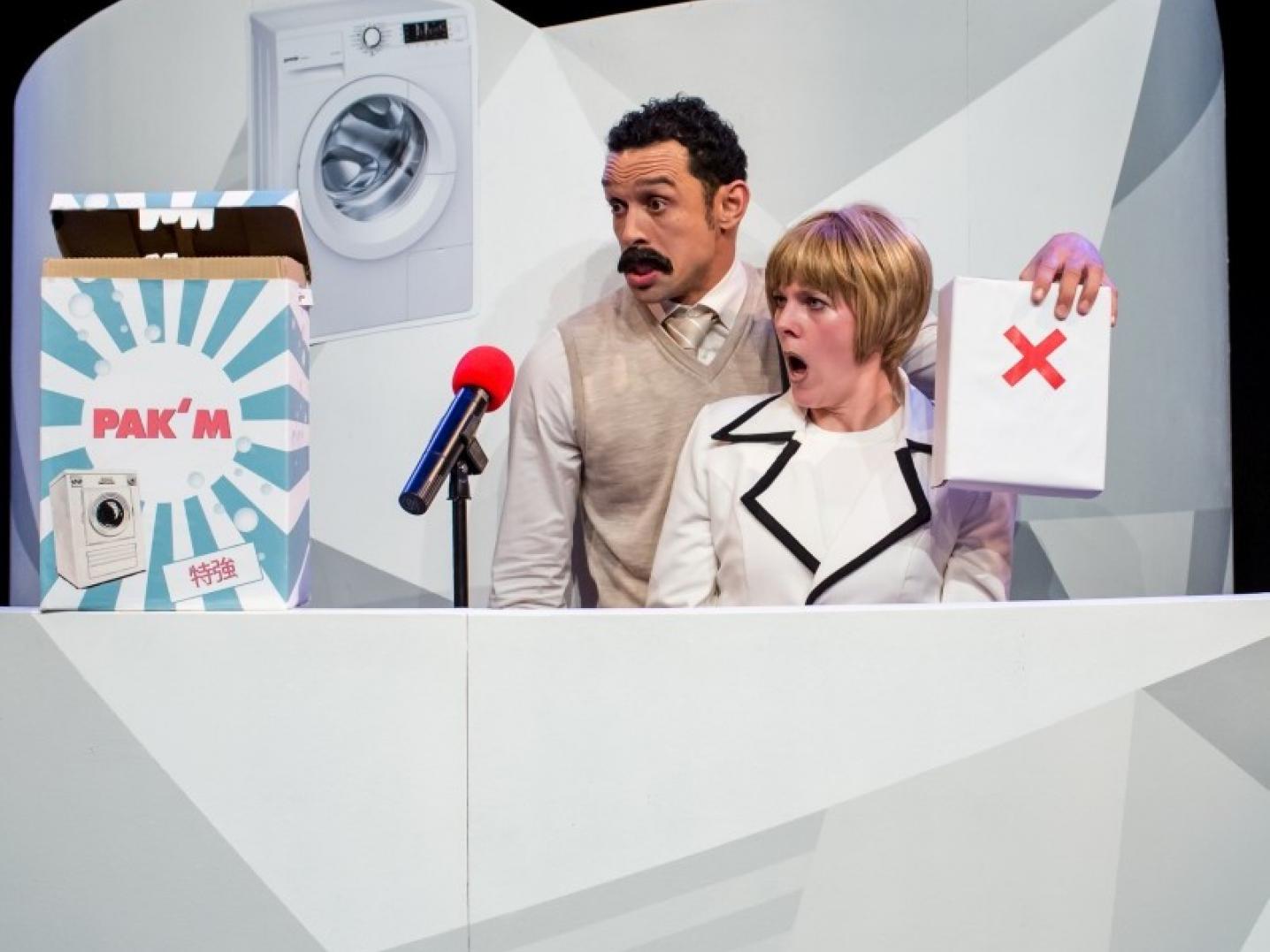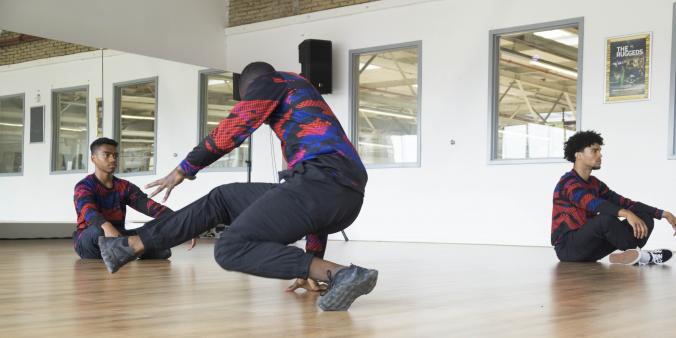
Recap: Dutch Embassy Culture Days 2020 go digital
In the week of September 28 2020, the annual Embassy Culture Days (Terugkomdagen 2020, #TKD2020) took place, for the first time entirely virtual. Main goals of the TKD2020 were to kick off the new policy framework for 2021-2024; to inform participants about relevant developments in the Netherlands, and to exchange and get inspired. Of course, Covid-19 and its impact on the cultural sector and our activities were discussed.
However, there is a bright side as well. This online edition gave all cultural colleagues in the 23 priority countries the opportunity to sign up; over 60 participants joined the conference. Although the online nature proved to be challenging from time to time, it was worth the effort: there were fruitful discussions and numerous exchanges of ideas on international cultural cooperation. In 10 sessions we enjoyed a week of inspiring contributions, pointed questions and lively discussions via chat.
In this article, we offer you a recap of four of the sessions that were held.
International Cultural Policy 2021-2024
One of the first sessions of the Embassy Culture Days touched upon the main topics of the international cultural policy 2021-2024.
Dutch embassies are transitioning into this new cycle of international cultural policy by formulating a Multi-Annual Plan that adheres to the framework laid out by the Ministry of Foreign Affairs and the Ministry of Education, Culture and Science, but that is also suited to the challenges and needs of their own country of residence.
The session also focused on plans of Dutch embassies. For example, the cultural attaché in Istanbul, Quirine van der Hoeven, presented the Multi-Annual Plan of the Dutch embassy in Turkey, called Ongoing Connections, which contains a reference to their previous plan Making Connections. The aim for the new period is not only to make connections between the Netherlands and Turkey but also with other countries. Vera Kuipers from the Consulate-General in New York gave a presentation about the youth theatre programme Never Grow Up! that has been a success in the United States and that can serve as an inspiration for other international posts. Finally, DutchCulture explained the services it can provide to Dutch embassies in the field of international cultural cooperation.
Even though embassies must operate within different contexts and take into account specific cultural sensitivities, the session showed that the embassies are dealing with similar challenges as well. For example, all international posts have to create digital alternatives for their live programmes due to corona pandemic and climate change. This session gave a good impression of the new policy framework and provided some practical examples.

The influence of COVID-19 on (future) international activities
In this session, representatives of the six Dutch cultural funds, EYE Film Institute Netherlands, The New Institute and DutchCulture discuss the challenges caused by the COVID-19 crisis. What solutions have been developed? The session takes off with participants discussing how existing international activities and relationships with partners can be maintained. Naturally, the first suggestion is to go digital, which all the institutions have done in the past months.
Moderator Joep Bremmers, director of Shared Business, raises the important question: are digital alternatives an opportunity or are they second-best? Director of EYE Film Institute Netherlands Sandra den Hamer mentions the podcast about Russian filmmaker Andrei Tarkovsky, produced by EYE. In a museum setting, the lecture series might have welcomed a hundred physical visitors—digitally, the format amassed more than 1300 listeners. Two more issues were raised concerning the digital realm: cultural players require more digital platforms to showcase their work, and business strategies need to be developed to make going digital profitable and sustainable.
Next, participants discuss how to build new networks if the only possibility is to meet digitally. A vital element of networking is lacking in today’s circumstances: physical interaction. This is where diplomatic posts can play an influential role: due to their local presence they can suggest and initiate new partnerships for Dutch institutions. In a way, they act as local brokers who research opportunities.
The final topic of conversation is the question of what is going to happen after the COVID-19 crisis. Will the creative sector change its practices, or go back to ‘normal’? Likely, the crisis will have a lasting impact on the way cultural projects take place. Roxanne Minten and Bero Beyer of the Netherlands Film Fund state that going back to how it was before is not an option. To keep the production chain alive and kicking in a sustainable way, travel must be arranged differently. As Beyer concluded: "We should not act in the same networks we already know—that does not bring anything new."
Embassies X Culture X Corona
Has corona put international cultural cooperation as we know it on hold? The cultural sector is inevitably suffering and mobility is still very limited or even non-existent. Important cultural projects have been cancelled. This means that the way cultural and creative institutions and artists cooperate together has to be reinvented. Early September DutchCulture organised a discussion between cultural operators called: Internationale culturele samenwerking: in pauzestand of stroomversnelling?
In this session, participants discuss the effects and consequences of COVID-19 for the cultural policy officers at the embassies. Three examples.
Hannah Oosterbaan, Dutch Embassy Brussels
What is the impact on the cultural sector in Belgium and what does the local government do? The Dutch embassy decided to launch a specific call to proposal, De Wacht-Ruimte (The waiting room), to stimulate Dutch – Belgian cultural cooperation. For example, Dutch singer-songwriter Eefje de Visser created instead of her planned tour the concert film Bitterzoet, as a creative answer to the corona crisis.
Theo Peters, Dutch Embassy Tokyo
What is the current situation in Japan? 2020 was supposed to be the year of the Olympic Games in Japan. A cultural programme related to the Games, called NL-Kanto, was set up to support the cultural exchange. Of course, the programme had to be postponed to next year. Luckily, the decision to cancel the Olympics was taken early, back in March already and not at the very last moment. Meanwhile, the embassy organised some pre-events in the run-up to NL-Kanto 2021.
Yolande Melsert, DutchEmbassy Jakarta
What is the impact on the cultural sector in Indonesia and what does the local government do to help it? The embassy in Jakarta was planning on celebrating the 50th anniversary of the Erasmus Huis. Because it was supposed to take place in December, there was plenty of time to come up with an alternative in case the situation didn’t improve over the months. Which is, sadly the case. However, the main programme will now take digitally. The focus is now on the next generations and Indonesian families, therefore one of the accents will be on children’s movies.
Cultural programme NITE Hotel
This session was dedicated to a special cultural initiative and moderated by media professional Shay Kreuger. When the corona crisis postponed the opening night of the new production by international dance company Club Guy & Roni, the creators started thinking about a virtual theatre. Their main question was: what is the essence of a theatrical experience? Business director Harmen van der Hoek explained how his team explored this question and came up with their initiative NITE Hotel.
NITE Hotel is a virtual space where people can visit a theatre, a bar and hotel rooms. Guy & Roni’s production Before/After had its world premiere at the theatre of NITE Hotel to 4.000 international audience members. Van der Hoek explains how this initiative opened up new opportunities for international collaboration. NITE Hotel can function as a permanent platform for intercultural exchange as it is digitally accessible around the world and grants more diversity. New tours have already been adapted. Take the production of Swan Lake, that will be performed in Eindhoven and simultaneously streamed to a festival in Istanbul. Both audiences will be able to engage with and even influence the course of the performance.
Two existing collaborations are highlighted during the session. First, Aaron Fernandes from the India Dance Company tells us how he was introduced to the Dutch Dance Company and how they now artistically collaborate. Secondly, Arjen Hosper of the ArteZ University of the Arts in Arnhem explains how NITE Hotel helped his students to graduate and show their graduation work to an audience, even though the school is closed due to coronavirus measures. The 54 people present at the session, among which many cultural attachés of Dutch embassies all over the world, responded enthusiastically to this new horizon of international collaboration. A session that certainly inspired and will probably lead many new cooperations after the Embassy Culture Days.
Follow up
There will be a follow-up on several discussed topics. For example: explore the possibility of additional thematic and tailor-made digital sessions during the year; explore forms of sharing best practices on cultural cooperation in a virtual environment; act upon the suggestion to share best practices on Dutch youth culture. Besides, DutchCulture will identify the desired service levels of missions for the upcoming policy period.


